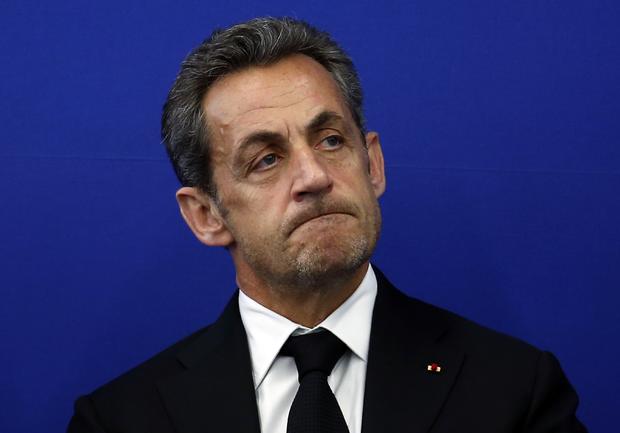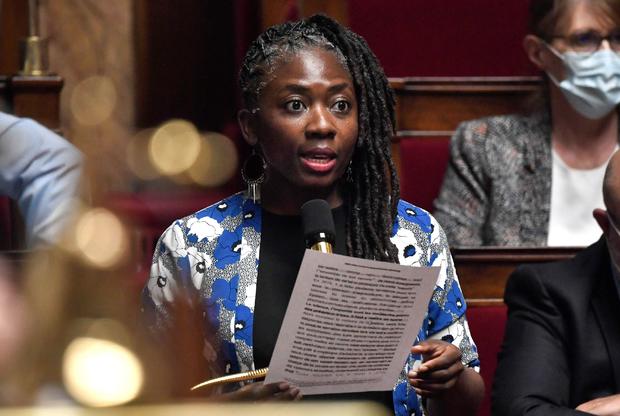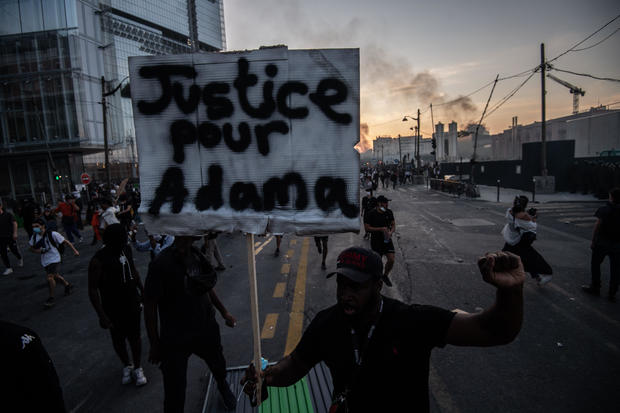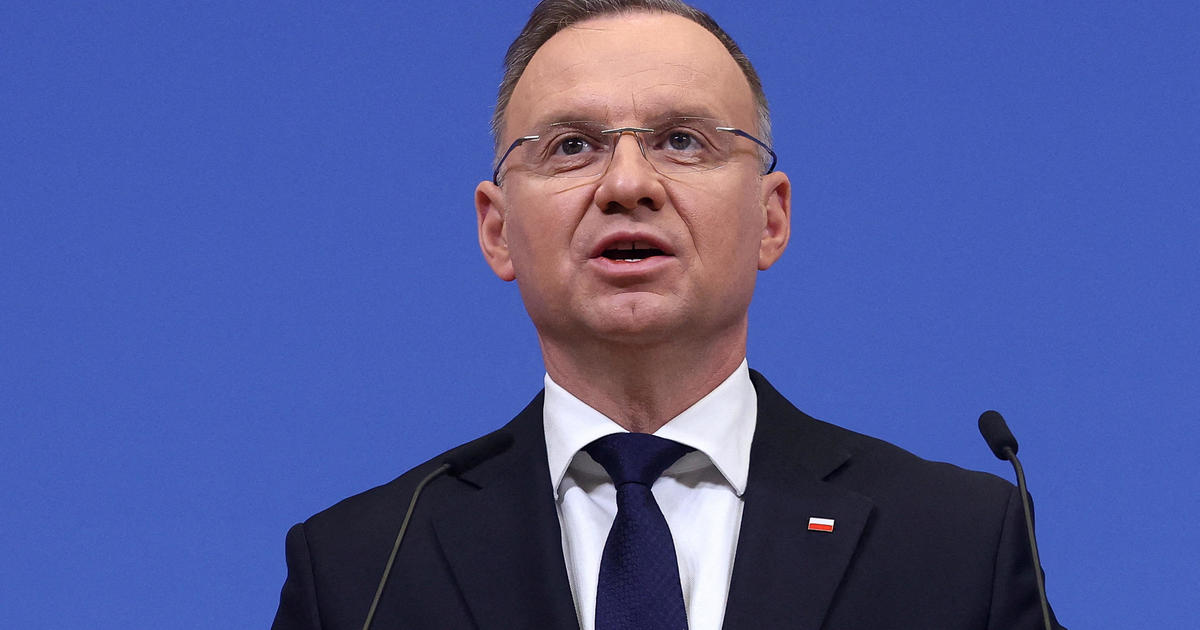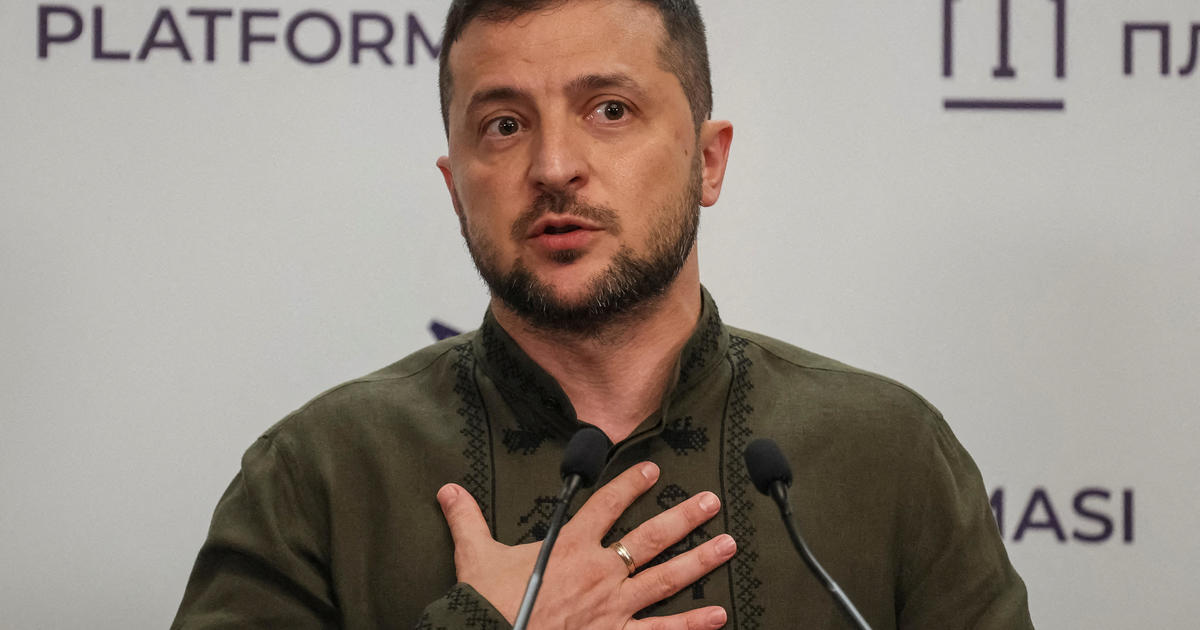Police investigating magazine that depicted a Black French lawmaker as a chained slave
Paris — Former French president Nicolas Sarkozy sparked controversy on Thursday by complaining in a TV interview that political correctness has gone too far. He said certain, otherwise innocuous words had come to be automatically deemed offensive, even if that's not the intention.
He said that some people refuse to hear certain things, "just like monkeys," and covered his eyes with his hands in a reference to the triptych of the "three wise monkeys," who see no evil, hear no evil, and speak no evil.
His choice of words prompted a quick backlash on social media, with some people accusing him of blatant racism.
The former president's comments touched a nerve just days after a prominent Black politician filed a complaint with police against a right-wing French magazine that depicted her, in a fictional article, as a slave with chains around her neck.
The magazine isn't huge, with about 100,000 paid subscribers, but the image of Daniele Obono caused an uproar across France. Obono is no stranger to racist or sexist insults, but she told CBS News this one went too far.
"I was shocked by the violence of the image," she said. "The way they portrayed me as this enslaved woman wearing chains, it really shocked me.
"That was what made me react and Tweet about it. I wanted people to see how far we have come — that a representative of the nation, a democratically elected official, can be targeted in this way."
In a tweet posted even before Sarkozy's latest remarks, Obono rejected the idea that France has become too politically correct, noting that the magazine, which she called a "rag," clearly still believed it could publish "racist sh**," which she condemned as "odious, stupid, and cruel."
The Gabon-born Frenchwoman, a member of the left-wing party La France Insoumise (France Unbowed), believes the magazine has actually stepped-up its racist rhetoric in recent months — a response, she believes, to the anti-racism demonstrations across the country sparked by the killing of George Floyd in the U.S., and the death of a Malian-French man in police custody outside Paris.
She said on Twitter that the violence of the magazine's personal attack made her more determined than ever to fight racism.
The article and the images that came with it were quickly condemned by French officials from across the political spectrum, including by President Emmanuel Macron, who called her personally. According to the presidential Elysée Palace, Macron expressed to Obono his "clear condemnation of all forms of racism."
Prime Minister Jean Castex tweeted: "This revolting publication should be roundly condemned… The fight against racism will always transcend our differences."
Obono said she was touched by the support she received from politicians, and from members of the public, who flooded her social media accounts with expressions of sympathy, anger and encouragement.
The magazine responded by saying it hadn't meant to cause offense. The article, it explained, was part of a fictional series placing contemporary characters in an imagined past.
Obono rejected the explanation, calling it an insult to her intelligence.
Both she and her party filed official complaints with the police claiming the magazine's content amounted to "racist insults" — an offense under national anti-racism laws adopted in the 1970s.
Paris Prosecutor Rémy Heitz issued a statement a few days later confirming that a formal police investigation into the magazine, for making alleged "racist insults," had been opened.
"I think the law should protect people against such violence, against racism," she said. "Racism is not just an opinion, it's a crime."
